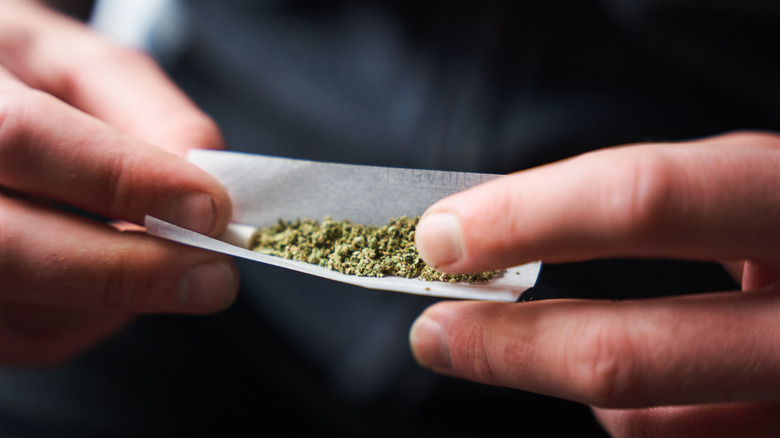
According to the authors of “The Health Effects of Cannabis and Cannabinoids: The Current State of Evidence and Recommendations for Research,” scientists have observed modest medicinal benefits from marijuana use, such as relief from nausea and vomiting, reduced pain, and improvement of spasticity symptoms in adults with multiple sclerosis (via National Library of Medicine).
However, the U.S. Centers for Disease Control and Prevention (CDC) reports that there have also been negative health effects documented for marijuana use, including dependency (cannabis use disorder), cognitive issues, driving impairment, lung damage, mental health disorders, and marijuana overdose.
Another concern is the potential impact of marijuana on cardiovascular health. Marijuana has been associated with an increased risk of stroke, heart disease, and other vascular diseases (per CDC). Research also indicates that marijuana use can affect blood pressure. However, what occurs when you smoke it daily may depend on several factors.
Marijuana has variable effects on blood pressure

The duration of your marijuana use may influence whether your blood pressure increases or decreases. The CDC explains that marijuana can cause your heart to beat faster and lead to an immediate rise in blood pressure.
However, prolonged use might actually result in a slight decrease in blood pressure. A 2023 study published in Scientific Reports, involving over 91,000 UK Biobank participants, explored the relationship between marijuana use and blood pressure. Researchers categorized individuals based on their marijuana usage frequency, ranging from never to heavy use, and discovered that those who heavily used marijuana throughout their lives tended to have slightly lower blood pressure, including systolic (top number), diastolic (bottom number), and pulse pressure. These effects were observed in both men and women, though they were stronger in women. Other factors, such as smoking, alcohol use, cholesterol status, and income, appeared to influence the relationship between marijuana use and blood pressure. The authors noted, however, that the observed decreases in blood pressure were too minor to warrant any treatment recommendations.
Marijuana’s effects may depend on the relative concentrations of tetrahydrocannabinolic acid (THC) and cannabidiol (CBD) in the product. While CBD seems capable of lowering blood pressure, THC (the compound responsible for the “high” associated with marijuana use) has the opposite effect. Therefore, in marijuana products with a higher THC content, this could increase blood pressure.
Should you avoid marijuana if you have high blood pressure?

While medical marijuana isn’t necessarily harmful to blood pressure, some studies have shown a correlation between marijuana use and high blood pressure, as well as a potential increase in cardiovascular risk when misused.
Any changes in blood pressure resulting from medical marijuana use are typically short-lived and not dangerous. However, if you have high blood pressure, it’s important to consult with your doctor before using marijuana, especially if you are already taking medications, as there could be interactions. For example, common drugs like statins and blood thinners could interact with marijuana, posing a risk to you.
Finally, factors such as dosage, method of use, and any underlying health issues you may have can all influence how marijuana might affect your blood pressure. Your doctor can best help you determine whether marijuana use is safe for you.




